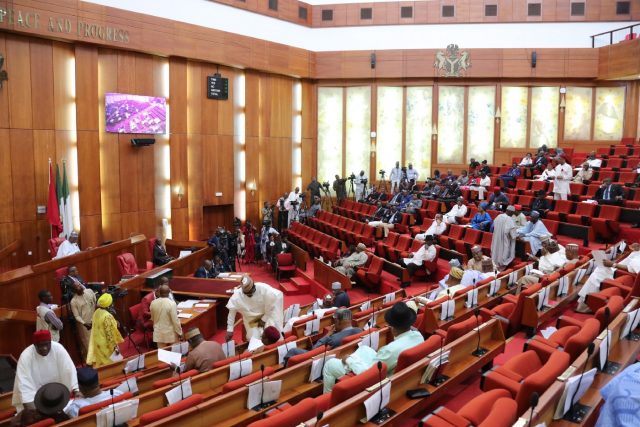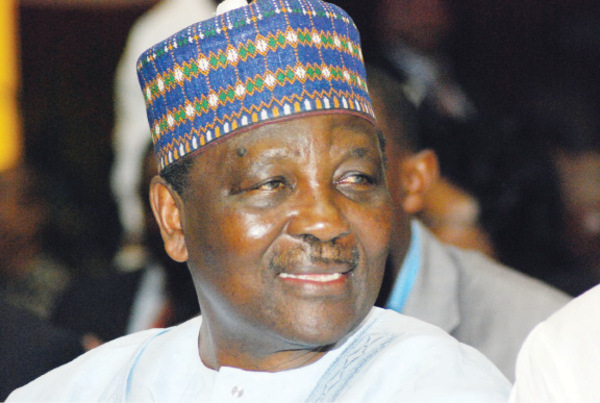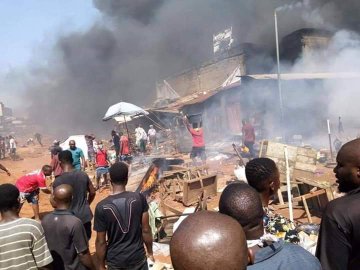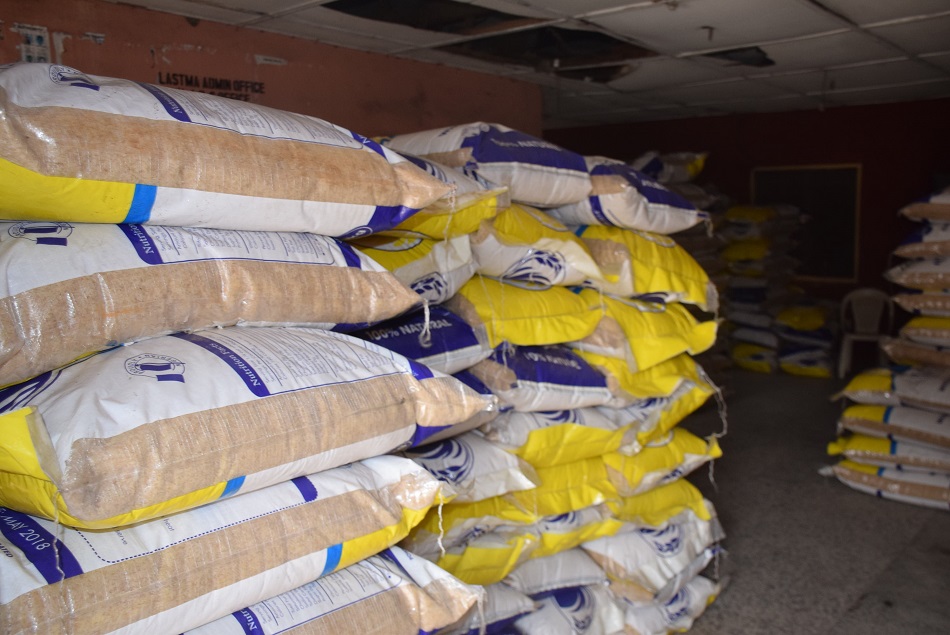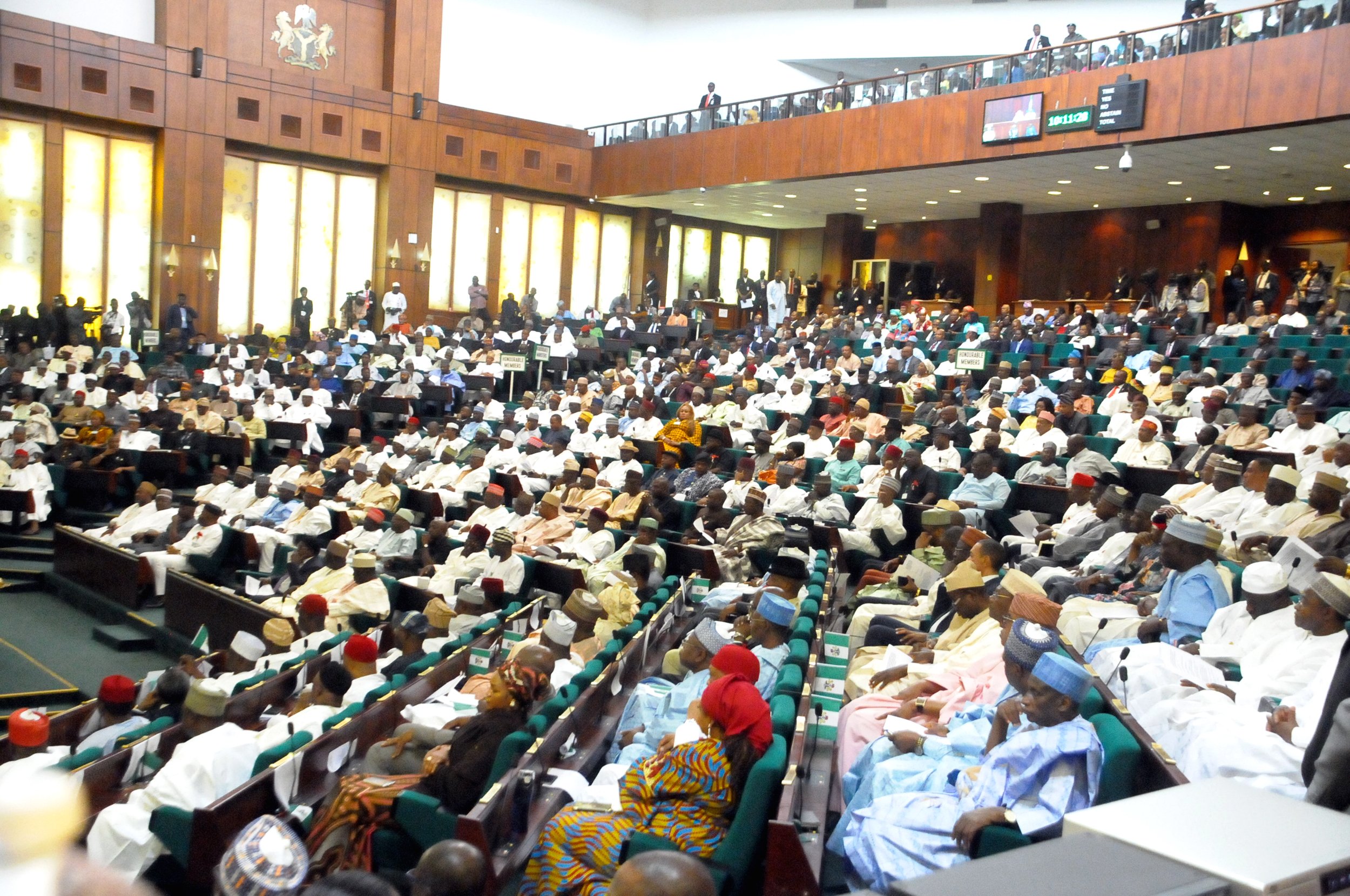Senate confirms Paul Tarfa as chairman of North-East Development Commission
Nigeria is multi in many ways. Multi-ethnic, multi-religious, multi-language, multi-state, multi-region, multi-culture, multi-party. And multi problems that arise from all thesemultis. What is worse is that it seems to generate a cycle of bad leadership that keep Nigerians in perpetual poverty and underdevelopment. One of the biggest headache worrying Nigeria is the deep-rooted ethnic and religious acrimony and distrust. Pretending about this is inwardly alluding of its existence and challenges yet choosing to wish it away. But it will never go away just like that.
Nigeria has had military leadership and is now in a civilian one. The military leadership that operated for more than 3 decades did not solve the country’s ethnic and religious crises. It brought war on July 6, 1967. The Igbo felt marginalized and exploited and wanted a separate country with its flag and currency. There are still feelings of anger and marginalization even decades after it. Why did this happen in a military regime in 1967?
The agitation for Biafra isn’t died yet in a civilian government more than 40 years after a war that lasted 3 years and claimed more than 1 million Igbo. Perhaps the death of their loved ones and the economic perils is the fire that burns through their agitations. There is clamour from the south people to have their own country. They talk of being cheated out of oil profits even though they ‘own’ the crude oil – the bulk of the revenue sustaining Nigeria. They want resource control. The western part of Nigeria is clamouring for Oduduwa republic. They too feel marginalized and exploited.
With all of these secessionist challenges and not neglecting that Nigeria has been in democratic representation for a stretch of 20 years and counting, the keen questions I have had to ask are; why a country with the largest concentration of black people in the world and the most populous in Africa and having gained independence from Britain since 960 still faced with a myriad of governance and development problems? Why hasn’t representative democracy solved our ethno religious conflict and economic hardship? One would have thought with the federal character put place which emphasizes fairness in the distribution of opportunities, why are there Nigerian citizens who still feel neglected by leadership? Of course, the answers to these questions cannot be a one size that fits all but for me, I would like to think that has to with adopting a style of leadership rooted in democracy that genuinely looks at and considers our peculiarities and differences yet gives us a sense of ownership and belonging, and more importantly brings us transformative development. I want to suggest that we adopt and practice a system of government I have chosen to call ‘Regional Rotational Democracy’?
Advertisement
We have had a military-style leadership that caused us war and further divided us. What we have now as a federal system of democracy since 1999 hasn’t solved our governance and development issues. The ethnic sentiments and crises still abound today as they were in the military era. We were a poor country during the military era. We are poorer now as a civil democracy. Today, there are about 91 million Nigerians who are desperately poor. There is a link between the style of leadership or governance a country practices and its socio-economic growth and development. I believe that Nigeria’s bad leadership, (and this is not to absolve the character and responsibility of the person who holds power at any time,) has a lot to do with the way it is constitutionally crafted.
There are a lot of countries we can draw examples on how they have chosen a style of governance that is unique to them and caters to their similarities and differences. More importantly, it brings economic prosperity and development to them. Take China for instance, having the biggest population in the world would have been a recipe for poverty and disaster but instead, China’s government choose to harness the strength of its huge population – a key advantage. It is now a model of what a country can look like when you develop your human capital and build infrastructure. China has transformed from having 700 million Chinese living in extreme poverty to just 30 million people in just 1 generation. Nigeria per capita income was higher than this same China in just 1960.
What China did was shun the world and pursued a style of government unique to them and it is responsible for the huge progress and development we witness today. It is a socialist model driven by a one-party system. That party is known as the Communist Party of China (CPC) and it makes laws and enforces it on all Chinese. In just 40 years, China has transformed from a very poor country to becoming the world’s second-largest economy. What worked for them? It is simple – they pursued a development system that suits them other than the one the West prescribes as the best. Their political system allows their people to orderly take part in state governance through a centralized democratic system. Zhang Chengfu, a professor of public administration at Renmin University of China, says that “the greatest strength” in China’s governance is embedded in a ruling party committed to genuinely serving the people and its people-centred philosophy of development.
Advertisement
China is not the only example we can take inspiration from but it is a unique one. The USA where it seems Nigeria copied their style of federal representative democracy has the electoral college that guides its principle of democracy and election. They have a style of governance unique to them only and which has delivered to Americans development and economic prosperity. The kind of democracy we practice here is bogus and accounts for a lot of waste that would continue to sink us into poverty if we don’t deliberately ask questions and search for the right answers. It is unsustainable. Recently, the governor of Ekiti state, Kayode Fayemi, made statements along these lines. We run the most expensive democracy in the world with very dismissal result to show for it. It also has not brought us the togetherness and oneness we need to move forward.
Let me propose the kind of democracy I think can give us progress and development. Each region in Nigeria should elect a president through an election every 6 years. The plurality of Nigeria is majorly rooted in ethnicity and religion.And we cannot deny the tension and distrust arising from it. The presidency should be rotated among the six geo-political zones every six years. This means that presidential election should take place at the end of six years, with each region taking turns to produce the president. The constitution should be amended to accommodate this. The bicameral legislature should be discarded and a unicameral legislature adopted with a house leader that must get two-third of votes from all the states represented in the federal assembly. That local government councils are autonomous should be not been by lip service. It must be enforced by law. This arm of government is much closer to the people and better understand their needs. What we have today are state governors who disregard what the law says with impunity and set up a caretaker committee. They put their loyal stooges in charge of these committees to comply with their corrupt acts of diverting local government funds to their private pockets. This cannot continue. We can have an open mind and look at my idea of what could work for Nigeria which I have termed ‘Regional Rotational Democracy’ and see ways we can expound on it. What I sincerely seek is the progress of Nigeria.
Paul can be reached on Twitter @Ogochukwu_Paull
Advertisement
Views expressed by contributors are strictly personal and not of TheCable.

